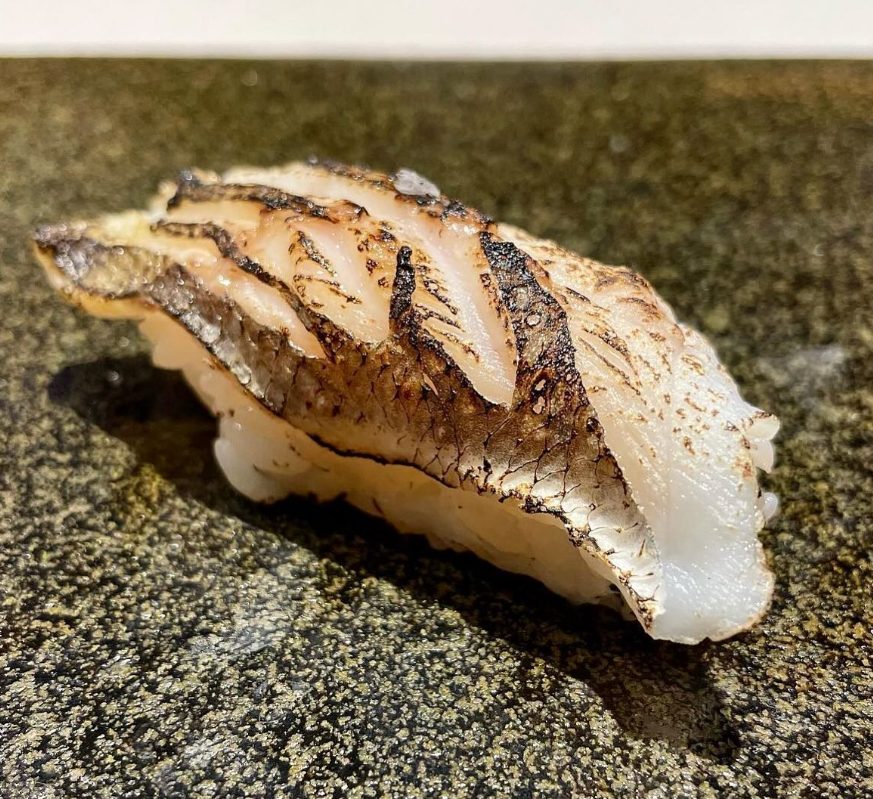You won't find foie gras on Dominique Crenn's Avec Amour spread
Flavors of the Forbidden
How New Restrictions Are Inspiring Chefs to Innovate
By Kelly McMurtry
Restrictions, whether imposed by law or circumstance, tend to ignite a chef’s creativity.
When ingredients are banned or supplies dwindle, chefs don't just lament; they reinvent. From finding ethical alternatives to recreating prized flavors, these culinary rebels are transforming limits into groundbreaking experiences.
Chefs show us that food is an art form that thrives under constraint. From lab-created ingredients to plant-based adaptations, they’re finding new ways to evoke the flavors of the “forbidden,” crafting dishes that captivate the senses without crossing ethical or environmental lines. In this world of reimagined luxury, restrictions aren’t a barrier—they’re the beginning of a culinary evolution.
When Dairy’s Off the Table
Going Creamy Without the Cream
As dairy restrictions grow due to health and environmental concerns, chefs are redefining creaminess without milk. At Dirt Candy in New York City, Amanda Cohen creates dairy-free sauces using cashew cream and cauliflower purées, achieving a velvety finish that rivals traditional dairy-based recipes. Cohen’s dairy-free dishes are a testament to plant-based creativity in fine dining, proving that creamy can be green.
The Foie Gras Fix
Satisfying Luxury Without the Goose
Foie gras, the controversial delicacy made from the liver of force-fed geese, has faced bans in places like California. For chefs like Dominique Crenn of Atelier Crenn in San Francisco, this isn’t the end—it’s a challenge. Instead of traditional foie gras, she serves a plant-based pâté that’s remarkably close in texture and flavor to the real thing. Known for her innovative and ethical approach, Crenn has shown that luxury dining doesn’t have to come with a moral compromise.
Alcohol Alternatives
Raising a Glass to Booze-Free Bars
In an era where wellness is king, alcohol restrictions have sparked a boom in “zero-proof” bars that go far beyond soda and seltzer. At Sans Bar in Austin, founder Chris Marshall mixes botanicals like elderflower and juniper berry to create complex mocktails that even cocktail aficionados can appreciate. Sans Bar has become a beacon for the sober-curious, proving that a night out doesn’t need to involve alcohol to be memorable.
Japanese Eel
A Tale of Endangered Umami
Japanese eel, or unagi, has become critically endangered due to overfishing, forcing chefs to explore more sustainable options. Yuki Nakai of Sushi Nakazawa in New York has embraced this challenge by using sustainable catfish prepared to echo unagi’s smoky sweetness. This switch has allowed him to honor a traditional Japanese favorite while respecting ecological limitations.
Truffle Trouble
When Fungus Goes Out of Reach
Truffles have long been a high-ticket item, but over-harvesting and climate change are making them scarcer—and pricier. At Blue Hill at Stone Barns, Dan Barber sidesteps this scarcity by turning to wild mushrooms and truffle-infused oils. Barber’s experiments with foraged mushrooms that carry rich, earthy flavors have allowed him to deliver that prized “truffle-like” depth, giving diners the essence of luxury without the truffle’s ecological cost.
The Bluefin Dilemma
Reinventing Sushi’s Star Ingredient
Bluefin tuna, prized in sushi for its melt-in-your-mouth texture, has seen populations plummet from overfishing. Sushi chefs like Daisuke Nakazawa of Sushi Nakazawa’s outpost in Washington, D.C., have turned to sustainable albacore, marinating it to recreate the buttery richness of bluefin. This technique has allowed Nakazawa to continue offering a world-class sushi experience while preserving a vital species.
More From Our Adventures
An OKC Culinary Revolution
Oklahoma City is serving much more than BBQ and onion burgers.
An Update From Baltimore
We add new spots to our best Baltimore restaurants list and find some new-to-us gems in this surprisingly foodie city.
The Dangerous Delicacies
For culinary thrill-seekers, there exists a more intense craving: dishes so risky that eating them could land you in a hospital.











